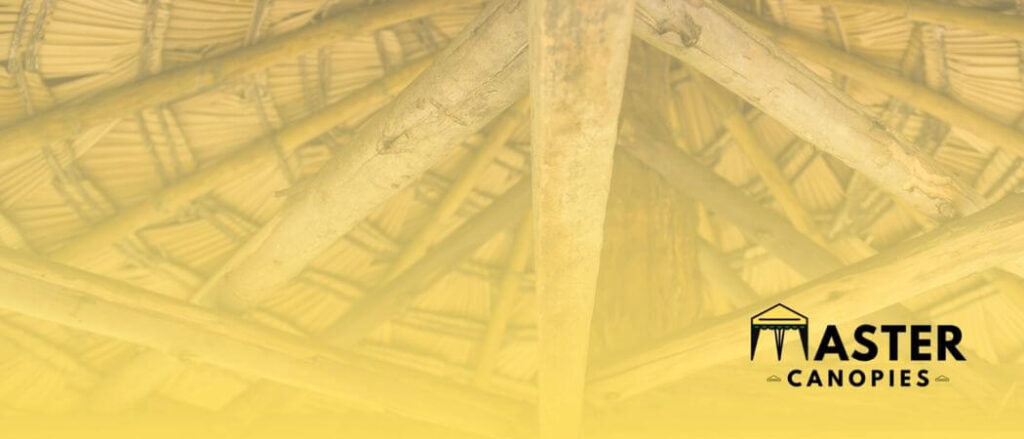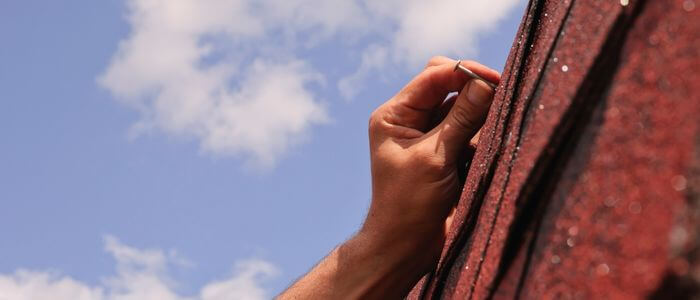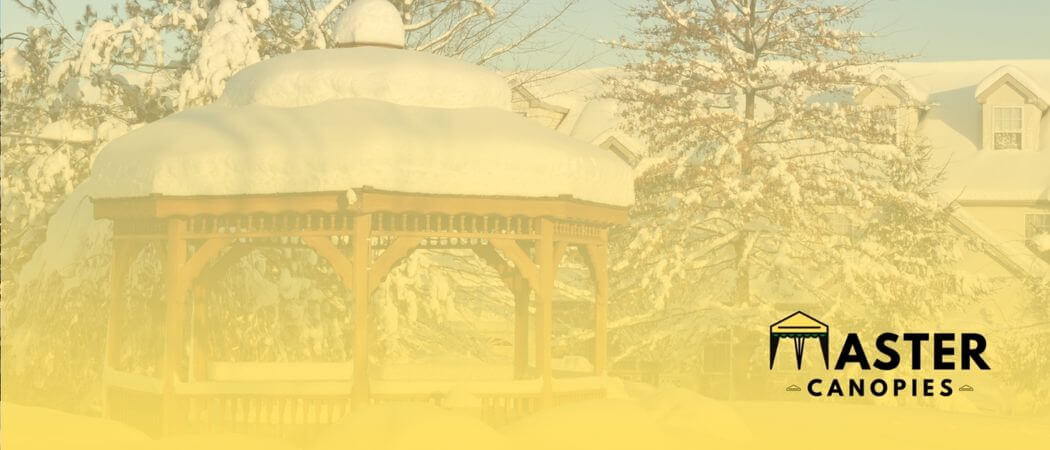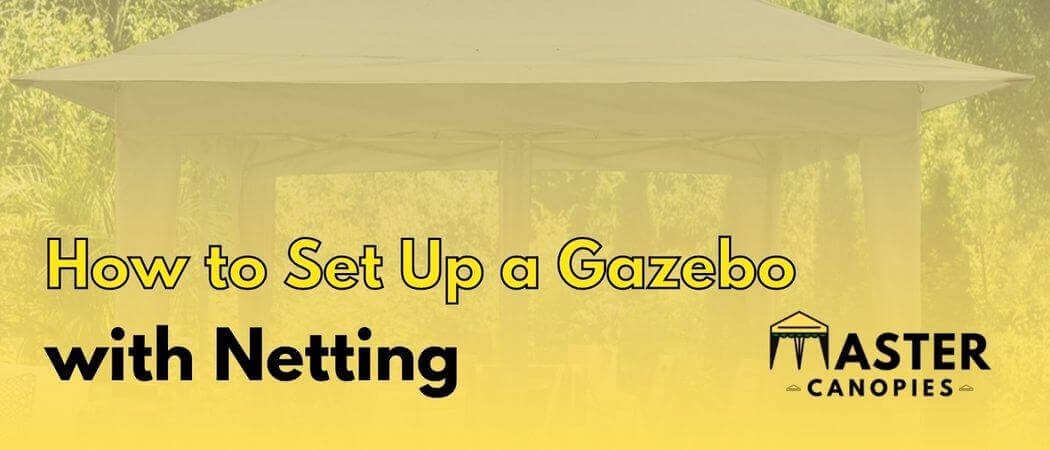
History of Gazebos: Who Invented the Gazebo?
History of Gazebos: Who Invented the Gazebo? Published October 6th, 2022 by Allen Campbell Let’s talk about the history of gazebos. Who invented the gazebo?
Published October 7th, 2022 by Allen Campbell

Do you have a gazebo that needs a new roof? Maybe your old roof has started to leak and you don’t know how to fix it. In this blog post, I will show you how to repair a gazebo roof using some simple tools and supplies. Not only is this more cost-effective, but it will also prolong the lifespan of your gazebo.
I will also provide some tips on how to prevent future damage. So, whether you’re a DIY enthusiast or just looking for a little guidance, keep reading for the info you need.
It is quite frustrating when you have a tear in your gazebo top, especially if it’s in a synthetic material. Most gazebos nowadays use synthetic materials for their roofs because they are more durable and last longer. However, even synthetic materials can tear over time.
The good news is that you don’t need to replace the entire roof, you can just patch it up. All you need is patches of the same synthetic material that can be glued or heat-sealed onto the existing roof. Without wasting any time, let’s look at the steps you need to follow.
First and foremost, you need to take off the synthetic roof. If you’re attempting to fix your roof by yourself, it can be challenging since roofs are often heavy. It’s best to ask for help from your friend or family member.
After removing the synthetic rooftop, lay it down on a flat surface in such a way that all the wrinkles are smoothed out. You will now be able to see the tears or holes more clearly.
Now that you can see the tears or holes, it’s time to clean them. Take a clean pad and soak it in alcohol. Rub the pad around each spot until the area is clean. Once you’re done, let the alcohol dry completely before moving on to the next step. This will make sure the patches attach correctly.
It’s time to measure the tear or hole. This is important because you will need to cut a patch that is slightly larger than the damaged area. If the tear is uneven, then use a measuring tape to get an accurate measurement. Once you have the measurements, add 1 inch to each side. This extra inch will allow the patch to overlap the damaged area by an inch on each side.
It is necessary to cut out the extra fabric from the patch so that it lies smoothly on the gazebo top. Trim the corners of the patch with a scissor to create rounded edges. This will help the patch to lie down smoothly on the gazebo top. Additionally, it will also prevent the corners from lifting up in the future.
The next stage is to remove half of the backing from the fabric patch. When removing the adhesive, be careful not to damage the surface. Once the backing is removed, the sticky part of the patch will be exposed. Make sure to peel it in a downward motion so that it doesn’t come off prematurely.
Now, it’s time to stick the patch on the damaged area of the synthetic roof. On the top of the damaged area, press the exposed adhesive part of the patch and start smoothing it out with your fingers. Once the patch is in place, remove the other half of the backing and smooth it down. Ensure that no air bubbles are trapped beneath the patch.
The next step is to stick the patch from the inside of the synthetic roof. This will guarantee that the patch is more robust. Apply the same technique from the inside. Once more, check for air bubbles and lay the patch flat.

Your gazebo can provide you with many years of enjoyment, as long as you take good care of the roof. If your roof is damaged, water can seep in and cause other issues. In this post, I’ve shown you how to repair a gazebo roof using common materials and tools.
Remember to be patient and take your time, it is better to do the job right than to rush through it. Also, take some preventative measures so that you don’t have to do any more repairs in the future. Thank you for taking the time to read this. I hope you found it useful.
Anyone who enjoys camping knows that a ripped tent seam can be a real pain. Not only does it let in light and insects, but it can also lead to serious leaks during rainstorms.
The good news is that repairing a torn tent seam is relatively easy. All you need is a tube of seam sealer and a little bit of patience. To begin, remove any loose threads or fabric from the rip. Next, apply the seam sealer to the edges of the tear, being careful not to get any on the surrounding fabric.
Once the sealer is dry, you can either heat-seal the edges with an iron or sew them together with a needle and thread. By taking the time to repair your tent seam, you can extend its lifespan and enjoy many more camping trips.
Gorilla Tape is a heavy-duty, double-sided tape that is often used for repairing tears in canvas and vinyl. It can also be used to secure the loose fabric to a tent pole or patch a small hole. Because Gorilla Tape is waterproof and weatherproof, it is an ideal choice for repairs on outdoor gear.
The tape is also very strong, so it can help to prevent further damage to the fabric. However, Gorilla Tape is not designed to hold up against high winds or severe weather conditions. For best results, use the tape to repair small tears or holes in the fabric of your tent.
If your gazebo’s frame is bent, fix it immediately. A bent frame can cause the structure to be unstable and unsafe. There are a few ways to fix a bent gazebo frame. One way is to use a come-along or ratchet strap to pull the bent sections back into place.
Another way is to use angled brackets or braces to reinforce the frame. Once the frame is straightened, you can add additional cross braces for extra support. With a little time and effort, you can have your gazebo looking and functioning like new again.
Gazebo roofs are typically pitched at a 45-degree angle. This allows the roof to shed water efficiently and provides plenty of headroom for people to move around beneath the gazebo. It also helps to provide some shade from the sun, making the gazebo more comfortable on hot days.
The 45-degree pitch is also generally considered to be aesthetically pleasing, so it is a popular choice for gazebos that will be prominently displayed in a yard or garden. Of course, there is no hard and fast rule about what angle a gazebo roof should be, so feel free to experiment until you find a look that you like best.
Keeping the rain out of a gazebo can be a challenge, but there are some things you can do to help. If you have a canvas gazebo, make sure it is tightly secured and that there are no gaps around the edge where water can seep in. Adding awnings or tarps might also give you more defense from bad weather.
If you have a metal gazebo, make sure that the roof is in good condition and that there are no leaks. You might also want to consider applying a sealant to the roof to help keep water away. In both cases, it is also important to ensure that the gutters are clear so that water can drain away from the gazebo.

Allen is a full time writer at Mastercanopies.com and enjoys traveling around the United States and exploring nature. He enjoys writing about canopies as he believes they are extremely crucial in having a successful camping trip whether it be a trip to the beach, mountains, or the open plains.

History of Gazebos: Who Invented the Gazebo? Published October 6th, 2022 by Allen Campbell Let’s talk about the history of gazebos. Who invented the gazebo?

Best Gazebos for Winter: Top Picks Published October 5th, 2022 by Allen Campbell Although the thought of winter may send shivers down your spine, it

How to Set Up a Gazebo with Netting: Put Netting on Your Gazebo Published August 30th, 2022 by Allen Campbell Summer is in full swing,

Best 12’x 12′ Pop-Up Gazebos with Netting Published August 29th, 2022 by Allen Campbell Looking for the best 12×12 pop-up gazebos with netting? You’ve come

Best Pop-Up Gazebos with Walls: TOP PICKS Published August 25th, 2022 by Allen Campbell A gazebo is a great way to add some extra living

Will Gazebos Get Blown Away? How to Secure Your Gazebo Tent Published August 12th, 2022 by Allen Campbell Gazebos are a popular addition to yards

How Much are Gazebos? Gazebo Costs: Custom & Premade Prices Published August 12th, 2022 by Allen Campbell Making a gazebo tent is a great way

Palapa vs Gazebo? What are the Differences? Published August 4th, 2022 by Allen Campbell Whether you’re looking to add some extra shade and relaxation to

How Much Wind Can a Canopy Take? Published June 1st, 2022 by Allen Campbell When you need a little additional cover, a canopy tent might

Master Canopies is here to bring you the best canopies for the outdoors so that you can enjoy the fresh air without the gleaming and burning light of the sun.

Master Canopies is here to bring you the best canopies for the outdoors so that you can enjoy the fresh air without the gleaming and burning light of the sun. As an Amazon Associate, we earn from qualifying purchases.